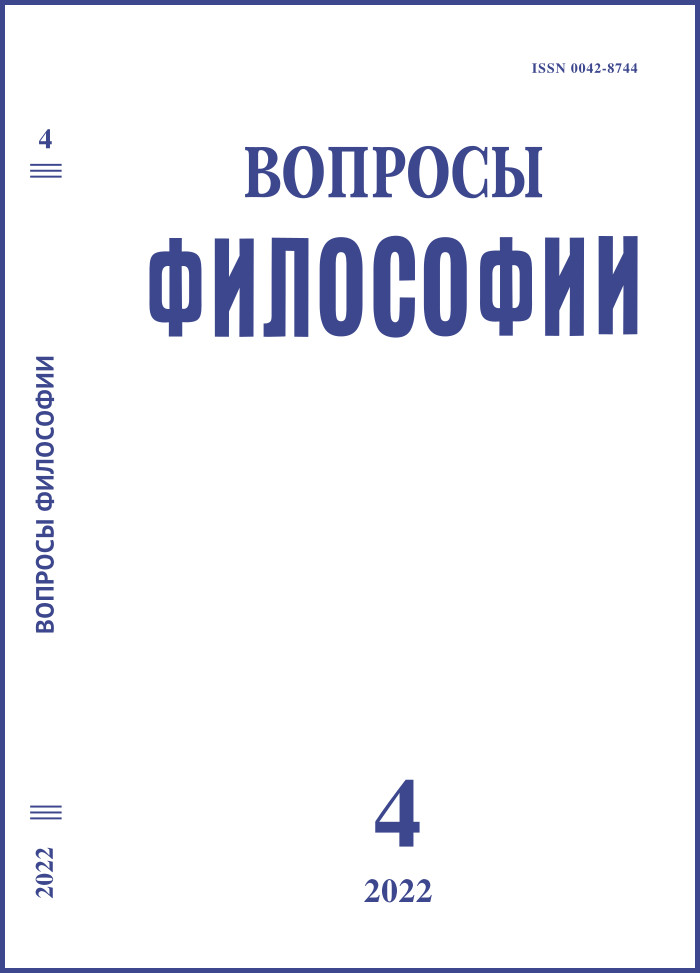Friedrich Heinrich Jacobi and the Moscow School of the Ecclesiastical-Academic Philosophy of the XIX Century Part I. Jacobi and Feodor A. Golubinsky
DOI:
https://doi.org/10.21146/0042-8744-2022-4-127-139Keywords:
history of Russian philosophy, ecclesiastical-academic philosophy, Friedrich Heinrich Jacobi, Feodor A. Golubinsky, Immanuel Kant, Friedrich Bouterwek, Pierre Poiret, reason and understanding, ideas of reason, the Infinite.Abstract
The article provides a comparative analysis of the philosophical views of Friedrich Heinrich Jacobi and professor of philosophy of the Moscow Theological Academy of the first half of the 19th century Feodor A. Golubinsky,
reveals the similarity of the positions of both thinkers in distinguishing and understanding of the Understanding and Reason as a discursive and contemplative ability, in the doctrine of the ideas of Reason, in a positive assessment of Plato’s philosophy, in the defense of theism and criticism of pantheism. The article examines in detail Jacobi’s thesis about the depending of theism and naturalism on certain theories of knowledge, his assessment of the teachings of Kant. The differences between Jacobi and Golubinsky in the name and characteristics of the Absolute are also revealed. The question of Jacobi’s attitude to the concept of infinity and of possible influences on Golubinsky, in whose philosophy the idea of the Infinite has become central, is specially considered. In this regard, the views of Friedrich Bouterwek and Pierre Poiret are analyzed. It is concluded that the main provisions of Jacobi’s doctrine of the reason and its ideas become a characteristic feature of the ecclesiastical-academic philosophy of the first half of the 19th century.
Downloads
Published
Versions
- 2025-02-06 (2)
- 2022-04-30 (1)

